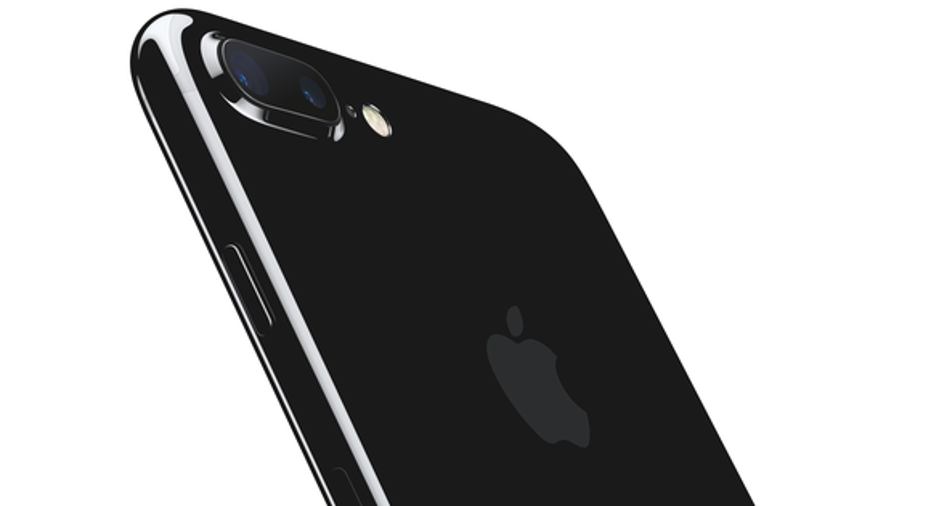Why Apple's Lawsuit Against Qualcomm Has More Teeth Than the FTC's

Last week, mobile chip giant Qualcomm (NASDAQ: QCOM) found itself on the receiving end of not one, but two antitrust complaints: one from the Federal Trade Commission (FTC), followed shortly thereafter by one from Apple (NASDAQ: AAPL). That sounds like a powerful double whammy of litigation, but the FTC's complaint may not actually have all that much staying power due to the recent presidential administration change.
Apple's complaint, on the other hand, carries no such concerns.
The Trump factor
The FTC's complaint was initiated following a 2-1 vote. There are typically fivecommissioners that are nominated by the president and must be confirmed by the Senate. They serve staggered terms that last seven years, and there can not be more than three commissioners from the same political party. There are currently two vacancies, but there are about to be three. Chairwoman Edith Ramirez, a Democrat that was appointed by President Obama in 2010, has announced her resignation effective next month.
FTC Chairwoman Edith Ramirez resigns next month. Image source: FTC.gov.
Of the two remaining commissioners, Maureen Ohlhausen (Republican) and Terrell McSweeny (Democrat), Ohlhausen was the dissenting opinion that voted against the suit. Ohlhausen even took the rare move of issuing a dissenting statement (link opens PDF), believing that "the complaint fails to allege that Qualcomm charges more than a reasonable royalty." The commissioner says that she has "been presented with no robust economic evidence of exclusion and anticompetitive effects."
President Trump has tapped former FTC commissioner Joshua Wright to advise on the FTC transition, and Trump is expected to bring back a Republican majority to the FTC for the first time in nearly a decade, along with a lighter regulatory stance. Despite Trump's anti-establishment rhetoric throughout the campaign, which at face value would suggest that he'd nominate outsiders, Trump's recent nominations for other agency positions are decidedly from the Republican establishment (including Wright).
The new commissioners will be inheriting a complaint that they are unlikely to feel strongly about. As such, it's quite possible that Qualcomm can settle the lawsuit relatively quickly and on more favorable terms.
Apple is done being quiet
In contrast, Apple's suit is unaffected by such political matters. This lawsuit isn't likely to go away anytime soon, and the new administration has no direct bearing on the damages that Apple is seeking. Unlike regulatory suits, which often end in fines and other types of negotiated concessions, Apple is seeking nearly $1 billion that it says it is owed from Qualcomm, which Qualcomm has been withholding in retaliation for the Mac maker cooperating with South Korean antitrust regulators.
Image source: Apple.
Apple also wants the court to help it obtain a direct license for Qualcomm's patents at more favorable terms. Apple is seeking disgorged royalties that it says have been "extortion-level," and wants to legally prohibit Qualcomm from voluntarily interrupting Apple's supply of baseband processors. More broadly, Apple is effectively asking for help in restructuring the royalties that it has to pay, arguing that Qualcomm's current practice of setting royalty rates as a percentage of the final product's sales price is inappropriate.
Simply put, Apple's case has more teeth than the FTC's because it's here to stay, and the outcome has the potential to significantly alter how Qualcomm does business with smartphone makers and competing baseband suppliers alike, especially if this all plays out publicly. It sounds like Apple's relationship with Qualcomm has been deteriorating for years, and considering the extent of what Apple is seeking in the way of damages, it seems unlikely that Apple and Qualcomm will simply kiss and make up.
It's still possible that it will get settled behind closed doors, and we're all familiar with Apple's penchant for secrecy. But Apple's rare move of suing one of its most important suppliers was intended to bring some of these practices to light, practices that Qualcomm has allegedly obfuscated for a decade with a sprawling web of confidentiality agreements.
Apple feels like it has been forcefully silenced all these years from speaking out against alleged anticompetitive behavior -- this suit seems predicated partially on principle. Apple has been quietly fighting Qualcomm for years, and it wants to be loud now. Settling wouldn't just feel like a financial compromise, but a moral one, too.
10 stocks we like better than Apple When investing geniuses David and Tom Gardner have a stock tip, it can pay to listen. After all, the newsletter they have run for over a decade, Motley Fool Stock Advisor, has tripled the market.*
David and Tom just revealed what they believe are the 10 best stocks for investors to buy right now... and Apple wasn't one of them! That's right -- they think these 10 stocks are even better buys.
Click here to learn about these picks!
*Stock Advisor returns as of January 4, 2017
Evan Niu, CFA owns shares of Apple. The Motley Fool owns shares of and recommends Apple and Qualcomm. The Motley Fool has the following options: long January 2018 $90 calls on Apple and short January 2018 $95 calls on Apple. The Motley Fool has a disclosure policy.



















